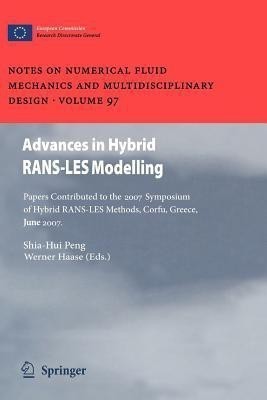Advances in Hybrid RANS-LES Modelling(English, Paperback, unknown)
Quick Overview
Product Price Comparison
Turbulence modelling has long been, and will remain, one of the most important t- ics in turbulence research, challenging scientists and engineers in the academic world and in the industrial society. Over the past decade, Detached Eddy Simulation (DES) and other hybrid RANS-LES methods have received increasing attention from the turbulence-research community, as well as from industrial CFD engineers. Indeed, as an engineering modelling approach, hybrid RANS-LES methods have acquired a remarkable profile in modelling turbulent flows of industrial interest in relation to, for example, transportation, energy production and the environment. The advantage exploited with hybrid RANS-LES modelling approaches, being - tentially more computationally efficient than LES and more accurate than (unsteady) RANS, has motivated numerous research and development activities. These activities, together with industrial applications, have been further facilitated over the recent years by the rapid development of modern computing resources. As a European initiative, the EU project DESider (Detached Eddy Simulation for Industrial Aerodynamics, 2004-2007), has been one of the earliest and most systematic international R&D effort with its focus on development, improvement and applications of a variety of existing and new hybrid RANS-LES modelling approaches, as well as on related numerical issues. In association with the DESider project, two subsequent international symposia on hybrid RANS-LES methods have been arranged in Stockholm (Sweden, 2005) and in Corfu (Greece, 2007), respectively. The present book is a result of the Second Symposium on Hybrid RANS-LES Methods, held in Corfu, Greece, 17-18 June 2007.


